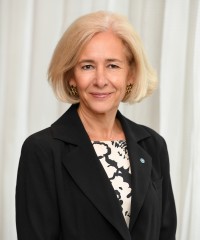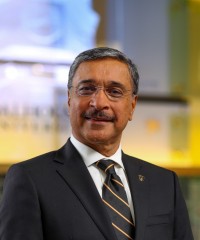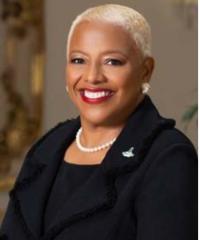
2023 CASE-GG+A Research Symposium
The 2023 CASE- GG+A Research Symposium takes place during the CASE Summit for Leaders in Advancement, with the goal of connecting education and advancement leaders with current academic research on key topics.
This year the symposium focuses on the future of leadership in education.
Featured Moderators and Speakers

Sue Cunningham
Crystal Apple Winner
President and CEO, Council for Advancement and Support of Education

Liesl Elder
Crystal Apple Winner
Chief Development Officer, University of Oxford

Deep Saini
Principal and Vice-Chancellor, McGill University

Maurie McInnis
President, Stony Brook University,

Javaune Adams-Gaston, Ph.D
President, Norfolk State University
Elective Session
10:15 AM - 11:15 AM ET
CASE - GG+A Research Symposium Research Symposium Part I
Presented by CASE and GG+A, the Research Symposium will feature three leaders in higher education who will examine the academic literature from a personal and professional view, helping us understand what we can learn about what traits make leaders most effective, navigating transitions at your institution and how you can work to develop a strong pipeline for leadership. Part I will include leaders discussing the literature.
Speakers: Sue Cunningham, President and CEO, Council for Advancement and Support of Education, US, Deep Saini, Principal and Vice-Chancellor, McGill University, CASE Trustee, Maurie McInnis, President, Stony Brook University, Javaune Adams-Gaston, President, Norfolk State University
Competencies: Strategic ThinkingLeadership
Part One Resources
Elective Session
11:30 AM - 12:30 PM ET
CASE - GG+A Research Symposium Research Symposium Part II: The Future of Leadership in Education
Presented by CASE and GG+A, the Research Symposium will feature three leaders in higher education who will examine the academic literature from a personal and professional view, helping us understand what we can learn about what traits make leaders most effective, navigating transitions at your institution and how you can work to develop a strong pipeline for leadership. Part II is an interactive, moderated discussion that will further explore how the highlighted academic research translates to the institution.
Speakers: Liesl Elder, Chief Development Officer, University of Oxford, Deep Saini, Principal and Vice-Chancellor, McGill University, CASE Trustee, Maurie McInnis, President, Stony Brook University, Javaune Adams-Gaston, President, Norfolk State University
Competencies: LeadershipStrategic Thinking
Resources on Educational Leadership
Connect with CASE Insights Surveys and Resources
CASE Insights
